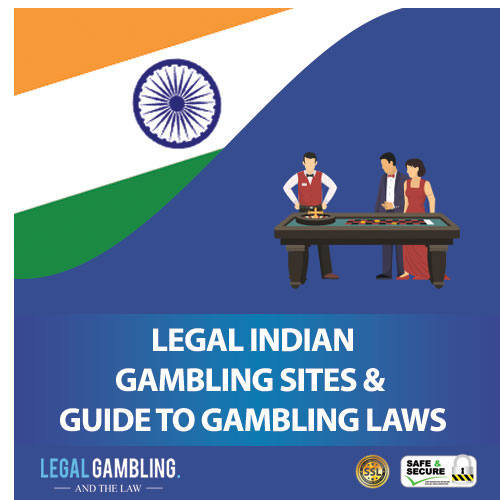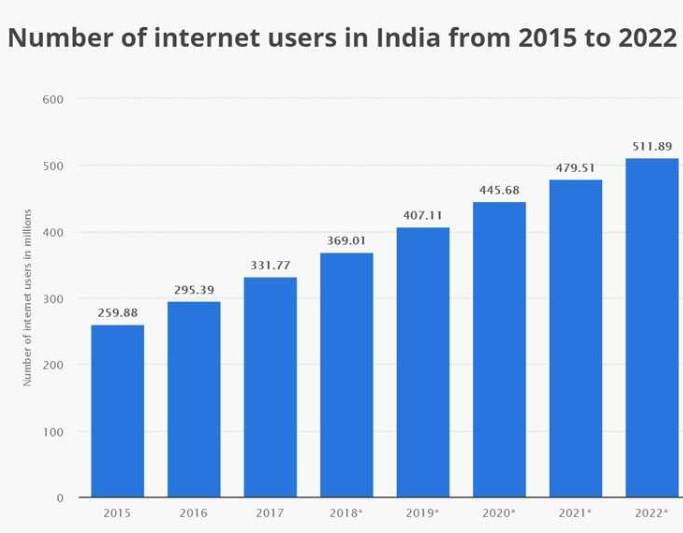Before entering into the question of online betting or gambling, let us examine whether ‘gambling or betting’ per se is legal or illegal in India. There are no central laws against gambling or betting in India. The Public Gambling Act, 1867 does not prohibit gambling or betting, it merely prohibits and prescribes punishment Act to provide for the ‘punishment of public gambling’ and the ‘keeping of common gaming-houses’.
- Why Is Gambling Illegal In India
- Why Is Gambling Illegal In India Currency
- Is Gambling Illegal In Indiana
- Why Is Gambling Illegal In India Right Now
The Indian Laws are highly discretionary and ambiguous in nature, when it comes to online gambling and betting. Hence, online gambling in India is not illegal, unless the Indian government formulates a law explicitly stating about its status. The Public Gambling Act of India deems this activity illegal, but the law is obsolete. It lacks proper regulation of online casinos and online bookies, which is why they fall under its grey area. The only specific law that is mentioned is that Indian-based online casinos and bookies are not allowed to operate. If the gambling is legalised in a controlled manner in India, thousands of crores (billions) of rupees in black money involved in the illegal gambling activity currently could be made available to the legal economy. Why gambling, betting should be legalised in India.
As per the Act, “Common gaming-house” means any house, walled enclosure, room or place in which cards, dice, tables or other instruments of gaming are kept or used for the profit or gain of the person owning, occupying, using or keeping such house, enclosure, room or place, whether by way of charge for the use of the instruments of gaming, or of the house, enclosure, room or place, or otherwise howsoever.
Thus, what is prohibited is “owning common gaming houses”. Further, a person found in such common gaming houses “playing or gaming” or is found there present for the purpose of gaming shall be liable to fine.
Betting or gambling is illegal in most of India. But there is no law that makes online betting an illegal activity. Offshore betting companies are apparently using this ‘loophole’ to lure Indians. State Gambling laws in India Now you must be wondering when the Indian central government has made a rule about gambling then why do different states have different laws. The answer lies in the seventh schedule of the constitution of India where the central government gives the right to the state government to make amends to the policies.
Can we say that online betting or gambling website or application is a “common gaming house.” When the Act was legislated in 1867, there was no internet or website. However, if we see the definition of common-gaming house, it includes a “place” in which instruments are kept for gaming. Meaning of place cannot be confined to “physical space only”, a place on web space is also a place, and therefore owning a website or application which offers gaming services “for gain” is prohibited under the Public Gambling Act.

Page Contents
Gaming:
The term “Gaming” was explained by Supreme Court in M.J. Sivani v. State of Karnataka, [(1995) 6 SCC 289],
“The elements of gaming are the presence of prizes or consideration, chance and prizes are reward and games include a contrivance which has for its object to furnish sport, recreation or amusement. Amusement would mean diversion, pastime or enjoyment or a pleasurable occupation of the senses, or that which furnished it. A common gaming house is a place or public place kept or used for playing therein any game of chance, or any mixed game of chance and skill, in which the organiser keeps one or more of the players. It is also a place in which any game is played, the chances of which are not favourable alike to all the players. Gaming is to play any game whether of skill or chance for money or money’s worth and the act is not less gaming because the game played is not in itself unlawful and whether it involved or did not involve skill.”
What is a Game of Skill:
Section 12 of the Public Gambling Act provides that Nothing in the foregoing provisions shall be held to apply to any “game of mere skill” wherever played. So, what is “game of skill”. A game of skill is a game where the outcome is determined mainly by mental or physical skill, rather than chance. Alternatively, a game of chance is one where its outcome is strongly influenced by some randomizing device, such as dice, spinning tops, playing cards, roulette wheels, or numbered balls drawn from a container. While a game of chance may have some skill element to it, chance generally plays a greater role in determining its outcome. A game of skill may also may have elements of chance, but skill plays a greater role in determining its outcome.
Whether a game is of chance or skill is a question of fact to be decided on the basis of facts and circumstances of each case. The Indian courts have recognised that no game is a game of pure skill alone and almost all games involve an element, albeit infinitesimal, of chance. The Hon’ble Supreme Court of India has interpreted the words “mere skill” to include games which are preponderantly of skill and even if there is an element of chance, if a game is preponderantly a game of skill, it would nevertheless be a game of “mere skill”.
What is Gambling:
Supreme Court observed in K.R. Lakshmanan (Dr) v. State of T.N., [(1996) 2 SCC 226],
“The New Encyclopaedia Britannica defines gambling as “the betting or staking of something of value, with consciousness of risk and hope of gain on the outcome of a game, a contest, or an uncertain event the result of which may be determined by chance or accident or have an unexpected result by reason of the better’s miscalculations”. According to Black’s Law Dictionary (6th Edn.) “Gambling involves, not only chance, but a hope of gaining something beyond the amount played. Gambling consists of consideration, an element of chance and a reward”. Gambling in a nutshell is payment of a price for a chance to win a prize. Games may be of chance or of skill or of skill and chance combined. A game of chance is determined entirely or in part by lot or mere luck. The throw of the dice, the turning of the wheel, the shuffling of the cards, are all modes of chance. In these games the result is wholly uncertain and doubtful. No human mind knows or can know what it will be until the dice is thrown, the wheel stops its revolution or the dealer has dealt with the cards. A game of skill, on the other hand — although the element of chance necessarily cannot be entirely eliminated — is one in which success depends principally upon the superior knowledge, training, attention, experience and adroitness of the player. Golf, chess and even rummy are considered to be games of skill. The courts have reasoned that there are few games, if any, which consist purely of chance or skill, and as such a game of chance is one in which the element of chance predominates over the element of skill, and a game of skill is one in which the element of skill predominates over the element of chance. It is the dominant element — ‘skill’ or ‘chance’ — which determines the character of the game.”
Supreme Court laid down the principle in Satyanarayana case [(1968) 2 SCR 387 : AIR 1968 SC 825 : 1968 Cri LJ 1009], that (i) the competitions where success depends on substantial degree of skill are not ‘gambling’ and (ii) despite there being an element of chance if a game is preponderantly a game of skill it would nevertheless be a game of “mere skill”. We, therefore, hold that the expression “mere skill” would mean substantial degree or preponderance of skill.
The law laid down by Supreme Court in the State of Bombay v. Chamarbaugwala [AIR 1957 SC 699] and [AIR 1957 SC 628], wherein it has been authoritatively held that a competition which substantially depends on skill is not gambling. Gaming is the act or practice of gambling on a game of chance. It is staking on chance where chance is the controlling factor. ‘Gaming’ in the two Acts would, therefore, mean wagering or betting on games of chance. It would not include games of skill like horse-racing. In any case, Section 49 of the Police Act and Section 11 of the Gaming Act specifically save the games of mere skill from the penal provisions of the two Acts. We, therefore, hold that wagering or betting on horse-racing — a game of skill — does not come within the definition of ‘gaming’ under the two Acts.
From the above following proposition emerges;
(i) Betting or gambling is not illegal or prohibited in India.
(ii) What is illegal is running or maintaining “common gaming houses for gains”.
(iii) None of the prohibitions apply if the game is a “game of mere skill”.
Element of Chance and Hope:

There is nothing in this life that does not depend upon chance, at least to some extent. The government makes a policy, and there are elements of chance whether the policy will succeed or not- is the policy-making a game of chance? An art dealer buys a work of art in the hope that prices of that work of art will increase in the future- is it a game of chance? People elect a government in the hope of good governance which may or not materializes- is it a game of chance? If we start seeing life in this light, there is nothing in life that is not a game of chance. If an effort or wish to gain money on chance is gambling- life is a gamble.
What is learning? What is knowledge? Learning or knowledge is nothing but acquiring skills, temperaments and information so that the “element of chance” in every game improves in one’s favour. So why do policy makers learn economics- so that they can make a policy which has a better chance of performing. Why should judges learn law- so that probability of justice increases in judgments.
Usefulness or uselessness of an activity has no meaning. A person may spend years in leaning the nuances of art or poetry or cricket, but on a crude level the activities may not be useful. A game of skill is when a player invests his/her time in learning, practising and refining his skill to perform in a particular game. The Supreme Court noted that games of skill would be where “success depends principally upon the superior knowledge, training, attention, experience and adroitness of the player. It is also noted by the Supreme Court that a Game of Skill will have a predominance of Skill Factor.
The Supreme Court in the case of K.R. Lakshmanan Vs. State of Tamil Nadu [AIR 1996 SC 1153] while deciding whether a “horse-race run on the turf of the club” is a game of chance or a game of “mere skill”? It held that the “horse-racing is a game where the winning depends substantially and preponderantly on skill”. The Court also said that “we have no hesitation in reaching the conclusion that the horse-racing is a sport which primarily depends on the special ability acquired by training. It is the speed and stamina of the horse, acquired by training, which matters. Jockeys are experts in the art of riding. Between two equally fast horses, a better trained jockey can touch the winning-post.
Another example is that of Rummy wherein the Supreme Court in State of Andhra Pradesh v. K. Satyanarayana [(1968) 2 SCR 387] concluded that “Rummy, on the other hand, requires certain amount of skill because the fall of the cards has to be memorised and the building up of Rummy requires considerable skill in holding and discarding cards. We cannot, therefore, say that the game of Rummy is a game of entire chance. It is mainly and preponderantly a game of skill”.
Betting and Gambling- A state subject:
In 1950 the constitution of India was introduced. In the constitution, it is written that states are allowed to formulate their own gambling laws. “Gambling and betting” have been mentioned in list-II of the seventh schedule of the Constitution, and therefore states are empowered to legislate laws on it. This means that each state in India has it’s own “betting and gambling” laws, and hence even the online “betting and gambling” will depends upon those laws.
Thus, in the state of Maharashtra, games of skill are allowed while games of luck are prohibited. The same is true for Karnataka and many other states. The state of Goa has allowed gambling by enacting the Goa, Daman and Diu Public Gambling Act, 1976. The Goa, Daman and Diu Public Gambling Act, 1976 was amended to allow card-rooms in offshore vessels and slot machines in five-star hotels. The Sikkim Regulation of Gambling (Amendment) 2005 authorises the State government to notify the specified areas where permission can be granted for running of casinos on payment of a specified fee.
The state of Nagaland has enacted the Nagaland Prohibition of Gaming and Promotion and Regulation of Online Games of Skill Act, 2016. The said Act provides for regulation and promotion of “games of skill” through the issuance of licenses. This Act provides that the license holders under the same can operate from any State in India where gambling is allowed. The state of Sikkim has framed legislation regulating the virtual or online gaming activities within its territory through Sikkim Online Gaming (Regulation) Act, 2008.
Recently the State of Tamilnadu, amended the Tamilnadu Gaming Act, 1930 by inserting Section 3A, which states that, “No person shall wager or bet in cyberspace using computers, computer system, computer network, computer resource, any communication device or any other instrument of gaming by playing rummy, poker or any other game.” The ordinance inserts the word cyber cafe under the Act as well as electronic record, computers, computer system, computer network, computer resource or any communication device under the amendment.
Conclusion:
Betting and gambling are state subjects, and states are duly empowered to regulate “betting and gambling”. The regulations may be in the form of licensing or even prohibition. As different states legislate different laws, uncertainty is likely to continue in the area. Though uncertainty in laws is a great tyranny, “uncertainty” in laws cannot be eliminated just like in any other areas of life. To that extent, even law making is a “game of chance” with the element of hope that newly enacted laws will work and do good.
[Views expressed are personal views of the author. The author may be contacted on office@rklegal.org]

It’s no secret that India is a nation that loves to gamble. Gambling activities in India can be traced since the ancient times and it never really ceased in the country despite how it’s still not yet legal. However, the Indian laws do not prohibit the locals from online gambling.
There is now law in the country that states how online casinos can’t offer their services to the locals of India. This is only applicable to offshore online casinos, of course, as local operations are still illegal in the country.
Many Indian players and punters are indeed flocking offshore casinos and sportsbooks to place their bets and play their favorite casino games. There are many possible reasons why the Indians enjoy gambling. Definitely, most are doing this for fun and to get easy money. For betting, on the other hand, is to show support to their favorite teams and athletes in different sports like cricket and field hockey.
India loves to play card games and so it makes sense why they enjoy many table games like poker, blackjack, and other games too like slots and the roulette. When it comes to sports betting, definitely, the majority of Indian punters would place bets on cricket games.
Cricket is simply a sport that the Indian locals are in love with. They watch it, they play it, and they wager on it. One of the biggest cricket tournaments in the world is the Indian Premier League that happens yearly. Whenever the IPL is on, many Indians would place their bets online and offshore operators are definitely benefitting from this.
The fact that local operations of casinos and sportsbooks are still illegal in India doesn’t really affect the industry. It’s still a good thing that online gambling is not really prohibited in the country as the offshore casinos are always to the rescue.
India is a significant contributor to the global gambling market. It’s still considered as a young industry compared to how other markets are doing in countries like the US, Canada, Europe, and China. It is estimated that the online gambling revenue in India is around 30 billion US dollars each year.
Why Is Gambling Illegal In India


What really contributes to the growth of this industry is the growing population of mobile and internet users. The majority of the revenues that the global gambling market gain each year is coming from the online or mobile sector. It just makes sense that as India gets more mobile and internet users, it also becomes a bigger market for the gambling industry.
Why Is Gambling Illegal In India Currency
The growth of internet users in India is pretty rapid over the last 10 years. It has a registered growth of 18 percent each year. By the end of 2018, there were 566 million internet users in the country and this number is expected to grow up to 730 million by the end of this year, 2020.
It helps that the country is beginning to get a better internet connection. Smartphones are also becoming more available to the locals. It’s true that these days, smartphones are becoming cheaper and with today’s technology, even cheap handsets can be used on mobile gaming.
With all these, mobile gambling is surely the future of the gambling industry in India. This is where the global gambling industry appears to be heading anyway. It’s just really important that key players in the industry show their interest in India.
This is because this country is the second most populated place in the world. It is also estimated that the adult population here is three times bigger than the adult population in the US. It just really is a big market for gambling operators.
It’s possible that the country will be one of the biggest markets in the gambling industry in the future. For now, it’s already doing good despite the restrictions that the country has regarding gambling activities.
It’s still hard to tell whether the Indian government is going to legalize gambling operations in the country, but it may be likely. There’s no denying that there are illegal operators offering their services in the country and this should be something that the government notice.
Is Gambling Illegal In Indiana
The Indian locals are surely at risk with illegal gambling activities and there’s really no better way to fix this than to regulate the local gambling industry. With how much the Indians are already spending on online casino games and sports betting, India will surely gain a lot from legalizing these activities.
Comments
Why Is Gambling Illegal In India Right Now
comments